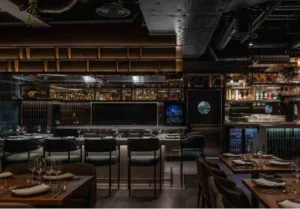
The Food and Beverage industry is one of the fastest-evolving sectors in the global economy. From health-conscious consumers to digital disruption and environmental pressures, the challenges keep multiplying. Yet at the heart of this transformation lies a simple truth: the brands that will survive are those that are both transparent and sustainable. For Mark Hladnik leading Elevation Juices Ltd. in Dubai, future-proofing F&B means combining openness with long-term responsibility. His perspective offers a blueprint for how companies can adapt, innovate, and endure.
Why Future-Proofing Matters in F&B
The idea of future-proofing is not about predicting every trend. It is about building resilience so that companies can thrive regardless of what comes next.
Why Future-Proofing Matters in F&B
Unpredictable Consumer Demands
Yesterday’s superfood can become today’s cliché. Companies that rely only on short-term fads risk obsolescence. Future-proofing ensures adaptability through strong values and systems.
Rising Global Pressures
Climate change, supply chain disruptions, and geopolitical conflicts are reshaping the availability and cost of ingredients. Companies that embed sustainability into their models are better positioned to survive these shocks.
The Demand for Transparency
The post–Paradise Papers era made secrecy toxic. Consumers and investors now expect proof of fairness, honesty, and accountability. Future-proofing requires building transparency into every corner of operations.
Transparency as a Competitive

Transparency is more than compliance it is a business strategy that creates trust.
Transparency as a Competitive
Consumer Trust Through Opennes
When customers can see where ingredients come from, how prices are set, and how sustainability goals are pursued, they feel confident in their purchase. Elevation’s QR code system for ingredient traceability is one way of turning transparency into a daily brand experience.
Investor Confidence
Investors increasingly prioritize ESG. Transparency reduces perceived. At Elevation, open-book practices ensure alignment with shareholders and reduce conflict.
Employee Engagement
Employees are more motivated when they understand how decisions are made. Transparency creates an inclusive culture where people feel part of the mission rather than cogs in a machine.
Sustainability as a Growth
Sustainability is often misunderstood as a constraint. Hladnik reframes it as an engine of growth.

Sustainability as a Growth Strategy
Environmental Responsibility as Innovation
By adopting biodegradable packaging, sustainable farming partnerships, and energy-efficient production, Elevation not only reduces impact but also differentiates itself in a crowded market.
Social Responsibility as Value Creation
Sustainability includes people. Fair wages, community engagement, and nutrition education build trust and loyalty. Consumers see Elevation not just as a juice company but as a partner in wellness.
Long-Term Profitability
Sustainable practices reduce risk. Companies that ignore them may enjoy short-term gains but face long-term costs in regulatory penalties, reputational damage, or supply chain collapse.
Elevation Juices: A Case Study in Future-Proofing
Elevation’s journey in Dubai offers practical lessons for future-proofing F&B.
Blending Culinary Art with Health Trends
By drawing on fine dining expertise, Elevation creates juices that satisfy both taste and nutrition demands. This dual approach future-proofs the brand against shifts in consumer focus.
Digital Integration
Technology is embedded in every step of operations, from blockchain-enabled sourcing to data-driven customer engagement. These systems provide resilience against disruptions while delivering personalization.
Governance Anchored in Values
Elevation uses governance frameworks that prioritize sustainability and transparency in every decision. This ensures that growth never comes at the expense of trust.
Global Lessons in Future-Proofing
Elevation’s practices align with global trends, but the examples from other markets reinforce their importance.
United States
Brands like Beyond Meat and Impossible Foods show how transparency and sustainability can drive rapid growth in competitive markets. Their success demonstrates the rising value of ESG in consumer choices.
Europe
European regulation demands radical transparency and sustainability, forcing companies to adapt or exit. F&B brands that lead in fair trade and carbon neutrality have gained powerful loyalty.
Asia
Asian markets highlight the importance of adaptability. Trends in health, technology, and ethics are evolving quickly. Companies that embrace flexible strategies while anchoring themselves in responsibility can grow sustainably.
Challenges in Future-Proofing
Even with the right mindset, companies face challenges.
Cost Pressures
Sustainable packaging and transparent technology systems can increase expenses. Companies must innovate to keep products accessible while maintaining principles.
Complexity Across Markets
Global operations must balance diverse regulatory and cultural expectations. Future-proofing requires flexible but consistent systems that can adapt to each market.
Risk of Overpromising
Brands that claim more than they deliver risk backlash. Future-proofing depends on authentic commitments, not exaggerated marketing.
The CEO’s Role in Building Future-Proof F&B
For Hladnik, the role of the CEO is central.
Defining Vision
Future-proofing begins with leadership articulating a vision that connects transparency and sustainability to business growth. Without this clarity, strategies become fragmented.
Aligning Stakeholders
Shareholders, employees, and consumers must all be aligned. A CEO ensures that responsibility is not treated as an afterthought but as the basis for strategy.
Leading by Example
When leaders practice openness and sustainability personally, the entire culture follows. Governance frameworks are important, but culture is built by example.
What the Future Demands
The coming decade will test F&B like never before. Climate shifts will affect crops, digital disruption will reshape consumption, and global consumers will demand higher standards of responsibility. Companies that resist change will struggle to survive. Those that embed transparency and sustainability will not only endure but lead.
Conclusion
Future-proofing F&B is not about predicting the next trend but about embedding resilience through transparency and sustainability. For Mark Hladnik and Elevation Juices Ltd., these principles are not slogans but systems that guide sourcing, production, and governance.
Information contained on this page is provided by an independent third-party content provider. Binary News Network and this Site make no warranties or representations in connection therewith. If you are affiliated with this page and would like it removed please contact [email protected]



Comments